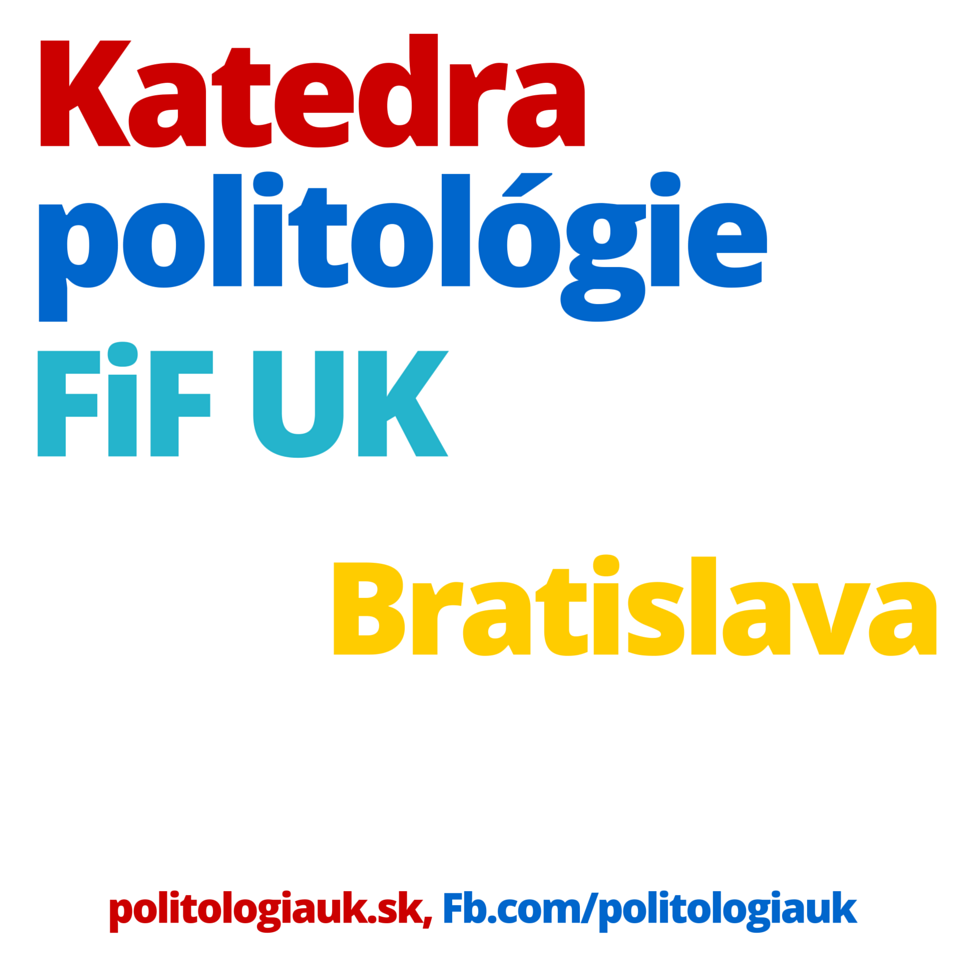Usporiadanie uznania v Európskej únii a malé členské štáty – EURECOR (APVV-145-0732)
Zodpovedný riešiteľ: prof. Jozef Bátora, PhD., Katedra politológie FiF UK
Webstránka projektu: www.eurecor.com
O projekte:
Základnou premisou z ktorej projekt EURECOR vychádza je, že EÚ ako spoločenstvo krajín predstavuje konšteláciu noriem, pravidiel a očakávaní, ktoré sú zdieľané všetkými členskými štátmi a aj ich spoločnosťami. EÚ ako politická entita charakteristická svojim nie ustáleným usporiadaním vzťahov a jej vlastnej vnútornej dynamike vývoja sa odkláňa od zaužívaných predstáv fungovania štátov založených na vestfálskom systéme. Základným procesom vývoja, ktorý zároveň aj štrukturuje vzťahy v ktoromkoľvek spoločenstve je uznanie. EURECOR preto skúma ako v spoločenstve štátov ako EÚ funguje špecifický typ usporiadania uznania. Doteraz máme relatívne málo poznatkov o tom, čo umožňuje členským štátom získať v rámci EÚ uznanie, za akých okolností sa tak deje a akým spôsobom tvorba uznania prebieha. Z tohto dôvodu, stanoveným cieľom projektu je analyzovať povahu usporiadania uznania v EÚ a určiť jeho vlastnosti a charakteristiky. Analýza je postavená na empirickom výskume dvoch navzájom prepojených dimenzií:
- verejného a mediálneho diškurzu o správaní sa členských štátov vo vzťahu k vybraným politikám EÚ;
- formovania ‚myšlienkových komunít‘, ktoré zdieľajú porozumenie EÚ ako politického projektu, a to v rámci členských štátov ako aj ponad ich hranice.
Zároveň sa EURECOR bude snažiť pokryť aj dve vzájomne prepojené analytické medzery v politologickej akademickej literatúre zaoberajúcej sa a) európskym vládnutím, kde sa skúma povaha EÚ ako politickej entity a b) rolou mäkkej moci (soft power) a verejnej diplomacie v medzinárodných vzťahoch v kontexte EÚ, ktorá je relevantná hlavne pre malé členské štáty ako Slovensko.
Ambíciou EURECOR je priniesť precíznejšie a hlbšie porozumenie usporiadania uznania v EÚ a tým prispieť k rozvoju teoretických debát o procesoch uznania a tvorbe identity ako aj o charaktere EÚ ako politickej entity. Ďalším dôležitým výstupom bude poskytnúť praktické poznatky využiteľné pri formulovaní stratégii verejnej diplomacie a brandingu Slovenska a aj iných malých štátov Únie.
About the project:
Starting point of the EURECOR project is that European Union represents a community sharing norms, values and rules facilitating cooperation among and across societies of the member states. Arguably, the EU does feature a constellation of norms and expectations placed on member states. As the Copenhagen criteria indicate, there are some shared notions and norms as to what constitutes proper institutional, legal and political features and characteristics of EU member states. Yet, the EU is an unsettled polity and there are multiple and competing visions as to what should be the core principles of integration and cooperation among the member states.
As such, the EU operates as a specific form of a recognition order: a framework within which individuals and groups are learning to see themselves as recognized with respect to certain characteristics. Recognition is a constitutive process in any social or political order. The Westphalian order of modern territorially sovereign states is constituted by specific forms and processes of recognition enabling and disabling actors from participation on a par with other participants. The European Union as a political entity possibly represents a departure from the established principles of the Westphalian state order.
We know relatively little about what provides recognition, under what circumstances and how to EU member states within the EU framework. In other words, the nature of the EU’s ‘recognition order’ is not properly conceptualized and understood so far. The aim of the current project is to analyze the nature of the EU’s recognition order and establish its characteristics. We seek to figure out what and how likely is to generate recognition to member states by fellow member states. We do this by empirically exploring two interconnected dimensions: a) public and media discourses on member states’ behavior in relation to particular EU policies; b) formation of ‘thought communities’ sharing understandings of the EU as a political project in and across member state boundaries. Based on this, we seek to develop a thicker understanding of the EU’s recognition order than is currently offered in the academic literature on EU governance and international relations. Other, more practical aim of the EURECOR is to provide knowledge useful in formulating strategies in public diplomacy and branding of Slovakia and other small member states.
